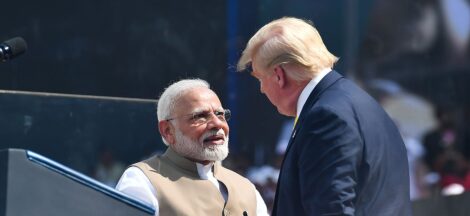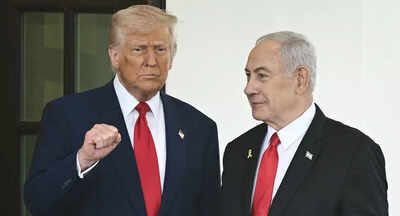U.S. President Donald Trump has moderated his earlier assertions of brokering the ceasefire between India and Pakistan, now stating he merely “helped” facilitate the agreement. This marks a significant shift from his previous declarations crediting American diplomacy for the cessation of hostilities.
Addressing U.S. troops at a military base in Qatar on Thursday, Trump remarked, “I don’t wanna say I did it, but I helped,” indicating a more reserved stance on his administration’s involvement in the negotiations. This contrasts with his earlier proclamation on Truth Social, where he announced a “FULL AND IMMEDIATE CEASEFIRE” between the two nations, attributing the breakthrough to U.S.-led talks.
The ceasefire, which took effect on May 10, followed a series of intense military exchanges between India and Pakistan, marking the most severe escalation in decades. While Trump and U.S. Secretary of State Marco Rubio emphasized American mediation, Indian officials have consistently maintained that the agreement was the result of direct communication between the two countries’ military leadership.
Indian Foreign Secretary Vikram Misri clarified that the ceasefire was initiated through a call from Pakistan’s Director General of Military Operations to his Indian counterpart. “It was agreed between them that both sides would stop all firing and military action on land, and in the air and sea,” Misri stated, underscoring the bilateral nature of the accord without external intervention.
Despite the ceasefire, tensions remain high. Indian Prime Minister Narendra Modi has issued stern warnings to Pakistan, asserting that any continued support for terrorism would prompt renewed military action. In a televised address, Modi emphasized that India’s military actions are only “paused” and contingent on Pakistan’s future conduct.
The initial outbreak of hostilities was triggered by a terrorist attack in Pahalgam, Kashmir, on April 22, which resulted in the deaths of 26 civilians. India attributed the attack to Pakistan-based militant groups, prompting retaliatory strikes under “Operation Sindoor.” Pakistan responded with “Operation Bunyan-ul-Marsoos,” targeting multiple locations in India.
Following the ceasefire announcement, both nations have accused each other of violating the agreement. Reports of explosions and continued military activity in disputed regions have surfaced, casting doubt on the durability of the truce. Indian officials reported Pakistani violations in Jammu and Kashmir, while Pakistan’s Information Minister denied these claims, accusing India of breaching the ceasefire.
International reactions to the ceasefire have been cautiously optimistic. Countries including Saudi Arabia, Iran, and Turkey have welcomed the agreement, urging both sides to engage in sustained dialogue to address underlying issues. The United Nations Secretary-General, António Guterres, described the ceasefire as a “positive step” towards resolving longstanding disputes.




 Trump’s Critique of Apple’s India Expansion Sparks Diplomatic Ripples
Trump’s Critique of Apple’s India Expansion Sparks Diplomatic Ripples 